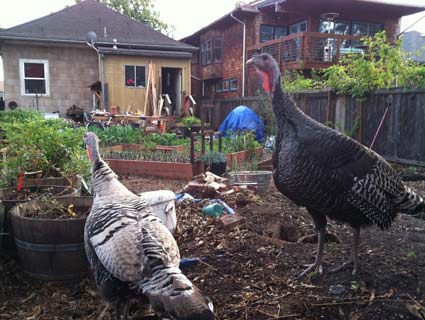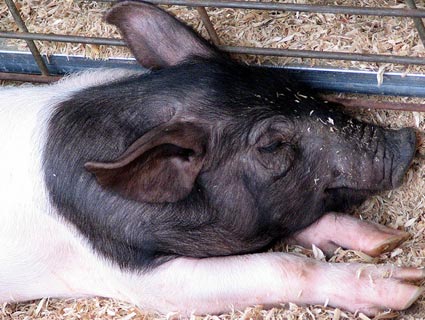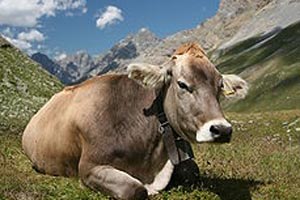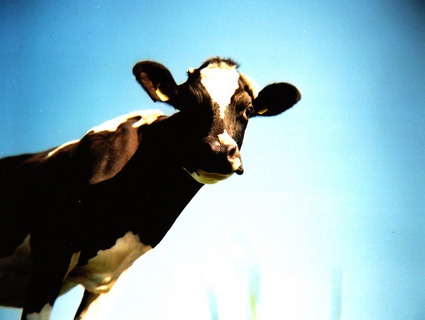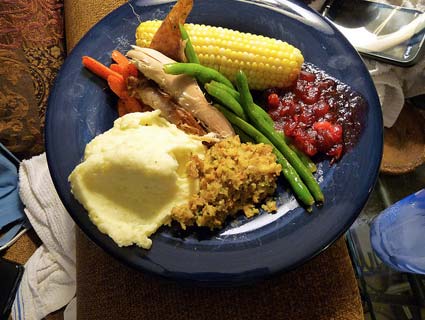
<a href="http://www.flickr.com/photos/doortoriver/4136529813/sizes/z/in/photostream/" target="_blank">doortoriver</a>/Flcikr
So you’ve got your free-range turkey. Your potatoes are strictly heirloom varieties. The cranberries for your sauce come from the local organic bog. Feeling pretty good about your Thanksgiving dinner, are you? Not so fast: The environmental footprint of food isn’t always what you’d expect. Last Thanksgiving, PBS Need to Know took a hard look at the subject, from a diverse range of perspectives. In its podcast, which is definitely worth another listen, we hear from geophysicist Gidon Eshel, NASA agronomist Cynthia Rosenzweig, best-selling author Anna Lappé, agricultural analyst Philip Thornton, and animal rights activist Tara Oresick.
By now, most of us are aware of the outsized environmental footprint of meat. As Lappé, author of Diet for a Hot Planet: The Crisis at the End of Your Fork and What You Can Do About It, points out, the production of one pound of beef can require as much as 16 pounds of livestock feed. And that’s to say nothing of all the waste associated with raising livestock, the methane and nitrous oxide emissions generated by the cattle, and the carbon dioxide created by trucks and tractors that transport feed and animals.
Of course, not all meat is as resource intensive as beef. Similarly, not all vegetables are as innocent as you might think. Eshel, whom I interviewed for my piece on whether or not vegetarianism is always greener than eating meat, says that in order to lessen the environmental impact of our diets, we should look at the efficiency of foods: How much energy is required to produce them, and how many calories do we gain? From this perspective, labels like “organic” and “local” aren’t always the most planet-friendly choices. In colder climates, local spinach and mesclun, for example, are frighteningly inefficient because they have to be grown in greenhouses.
And the efficiency of foods can vary dramatically depending on where and how you live. Thornton, a livestock expert, argues that Americans use cattle very differently from people in other parts of the world. In Kenya, families often depend on one or two cows for income: The animals provide not only milk and/or meat, but also fertilizer, so their overall energy yield is much greater. In some climates, raising livestock can actually require fewer resources than growing crops.
So how efficient are the foods on your Thanksgiving plate? The answer may surprise you. (Hint: Turkey is not as bad as you might think. Phew!) For the answer (plus an inside look at an Adopt-a-Turkey program in upstate New York, and more) listen to the podcast:

